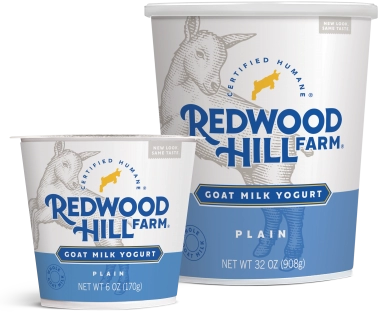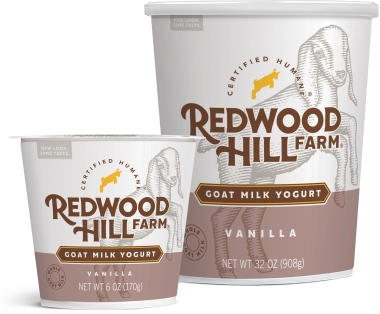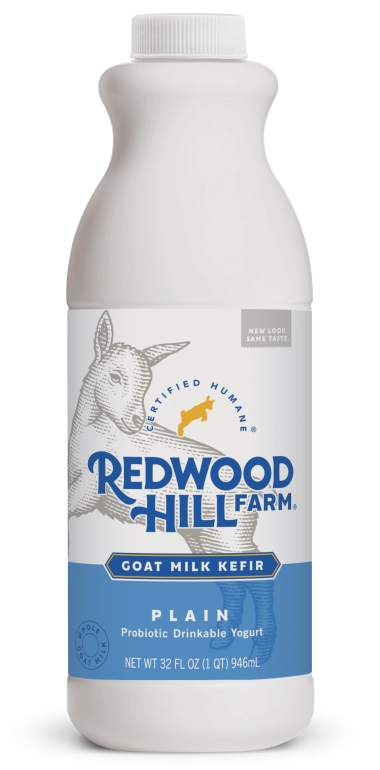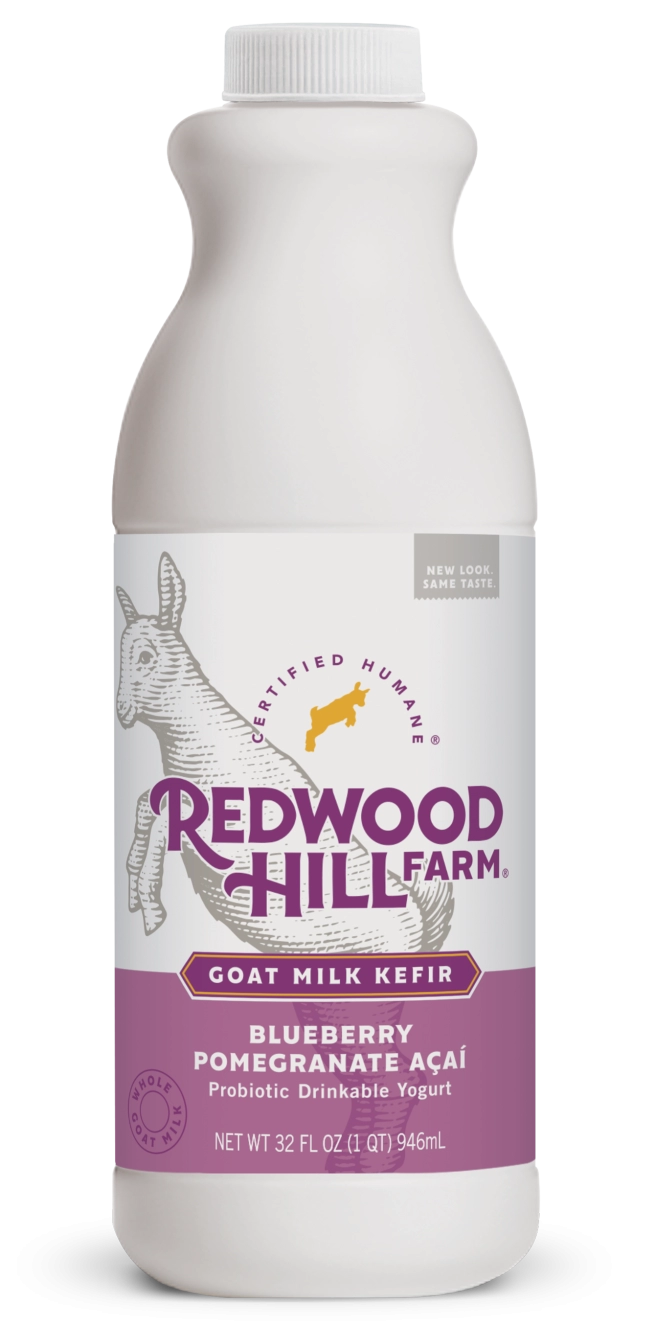BY TAMARA DUKER FREUMAN, MS, RD, CDN
Reasons to Choose Goat Dairy
But when the rest of the world looks for an alternative to cow’s milk dairy, they do it quite differently than we do here. Globally, the most popular form of dairy is… (wait for it)… goat milk dairy!1 If you haven’t had the pleasure of smearing some creamy chèvre on a cracker or stirring freshly picked summer berries into a tangy bowl of goat milk yogurt, you might be wondering what the hundreds of millions of people around the world know that you don’t.
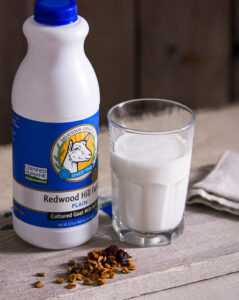
Nutrient density: Plant-based milks can contain up to 98% water, and most of their nutrients are added to the beverage in factories rather than being derived from the namesake ingredient. They’re especially low in protein—with the notable exception of soymilk. Goat’s milk, on the other hand, is a minimally-processed nutritional powerhouse that stacks up favorably compared to cow’s milk. In addition to having an edge on satisfying protein content (9g per cup, compared to 8g in cow’s milk), goat’s milk also contains even more calcium than cow’s milk, according to the USDA’s National Nutrient Database. Not only is dietary calcium important to protect bone mineral density as we age, it seems to have a preventive effect against colorectal cancer.
Nutrient absorbability: Being loaded with nutrients is all well and good, but it wouldn’t mean much if those nutrients weren’t easily absorbed. Goat milk dairy is a winner in this dimension, too. Calcium absorption is aided by protein, which goat’s milk is loaded with and most plant-based milks lack. In addition, animal studies suggest that goat milk dairy seems to enhance absorption of important minerals like iron and zinc. This is in contrast to both cow’s milk—which impairs iron absorption somewhat—and soy milk, which contains compounds called phytates that impair both calcium and iron absorption.
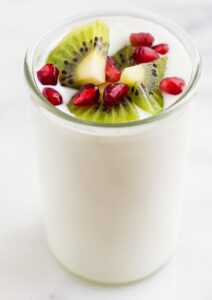
Prebiotics for gut health: Many people seek out yogurt or cultured non-dairy alternatives for the health benefits offered by the live and active “probiotic” bacteria they contain. But goat’s milk contains unique compounds that offer even more promise for gut health: “prebiotic” carbohydrates that nourish the beneficial bacteria living in our guts, helping to cultivate a diverse and thriving inner ecosystem. The type of prebiotics that goat dairy contains are called oligosaccharides; these are the same types of sugars found in human breastmilk that are responsible for many of its benefits on infant health. You won’t find them in cow milk dairy or plant-based milks.
Clean, minimally-processed ingredients: Ever read the label of a non-dairy milk alternative? It’s basically an emulsion of water and thickening gums fortified with vitamins and minerals. Some products will have added protein isolates as well. In other words, they are highly processed foods. Goat milk dairy, on the other hand, is a minimally processed food. Redwood Hill Farm doesn’t add any milk powder, gums, preservatives, or artificial thickeners to its products, and uses only the best organic fruit and vanilla. Plus, the goats on the seven family farms that supply milk to Redwood Hill Farm are never given growth hormones or antibiotics in their feed. Each farm is Certified Humane®, which means they undergo annual inspections to ensure humane and responsible practices are used.
If all this talk about goat dairy goodness has triggered an acute case of FOMO, it’s not too late to join the rest of the world in embracing the “other” white milk. Give goat milk yogurts and kefirs a go!
Tamara Duker Freuman, MS, RD, CDN, is a registered dietitian and nationally-known expert in managing digestive disorders through diet. She is the author of the forthcoming book, “The Bloated Belly Whisperer” (February, 2019), and maintains a clinical practice in New York City.
1 Park, Young W. “Goat Milk—Chemistry and Nutrition.” Handbook of Non-Bovine Mammals, edited by Young W. Park and George F.W. Haenlein, Blackwell Publishing, 2006.
